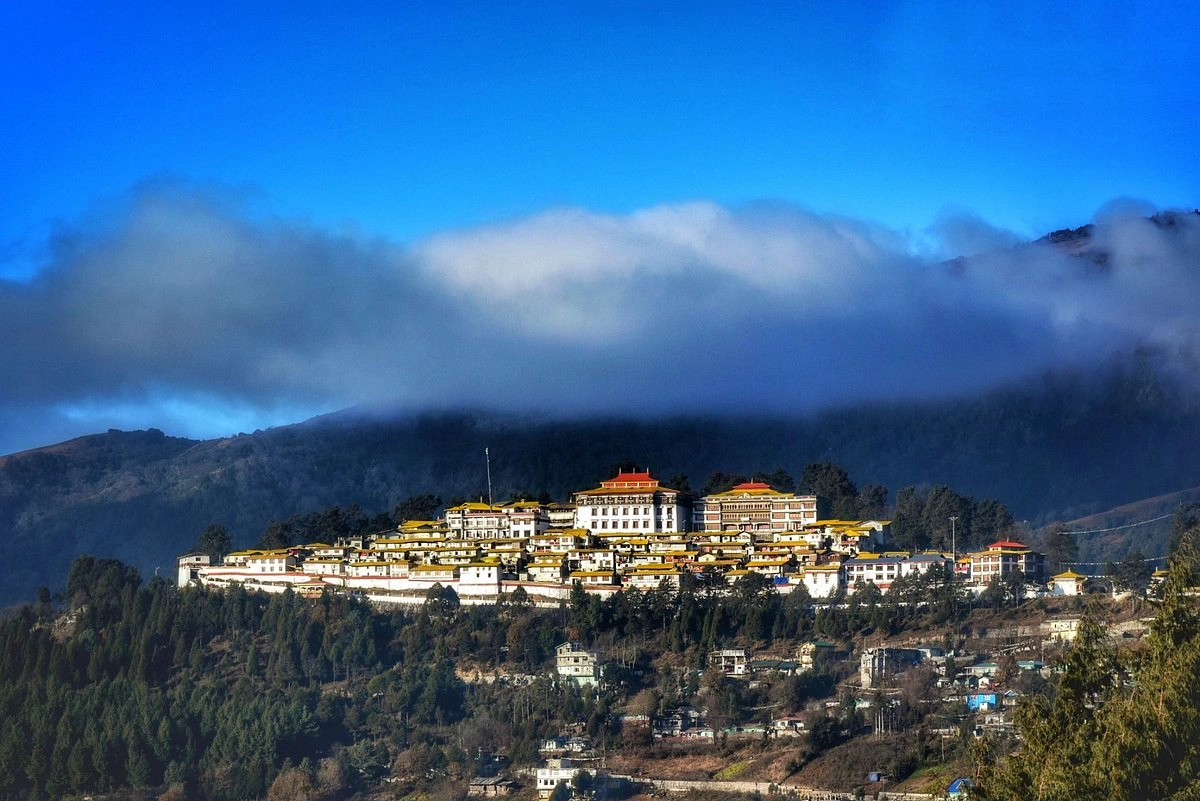About Tawang

Welcome To Tawang
Tawang is located in the northwestern part of Arunachal Pradesh, India, at an elevation of approximately 3,048 meters (10,000 feet) above sea level. Nestled in the eastern Himalayas, it is close to the Tibetan border. The region is renowned for its rugged mountains, verdant valleys, and serene lakes. Tawang offers breathtaking views of snow-capped peaks and tranquil rivers, creating a pristine environment for travelers seeking peace and natural beauty.The area is also rich in cultural heritage, home to ancient monasteries and vibrant festivals that reflect the unique traditions of the local Tibetan Buddhist community.
Location: Tawang is located in the northwestern part of Arunachal Pradesh, India, at an elevation of approximately 3,048 meters (10,000 feet) above sea level. Nestled in the eastern Himalayas, it is close to the Tibetan border. The region is renowned for its rugged mountains, verdant valleys, and serene lakes. Tawang offers breathtaking views of snow-capped peaks and tranquil rivers, creating a pristine environment for travelers seeking peace and natural beauty.
Climate: Tawang experiences a cold alpine climate, with distinct seasonal variations:- Summers: Summers in Tawang are cool and pleasant, with temperatures ranging from 5°C to 20°C (41°F to 68°F). The snow begins to melt, and the region becomes accessible for travelers.
- Monsoon Season: From June to September, Tawang receives moderate to heavy rainfall, which keeps the region lush and green. Travel during this time may be difficult due to occasional landslides.
- Agriculture: Although the rugged terrain limits large-scale farming, locals grow crops like barley, maize, and potatoes. Livestock rearing, especially yak, plays a significant role in the economy.
- Tourism: Tawang has become a popular tourist destination due to its historical and religious significance. The town's economy benefits from spiritual tourism, adventure activities, and local festivals that attract visitors year-round.
- Handicrafts: Traditional crafts such as weaving, Thangka painting, and wood carving are integral to Tawang’s economy, reflecting its deep cultural roots.
- Tawang's culture is steeped in Tibetan Buddhist traditions, and its festivals reflect the town's spiritual and cultural vibrancy:
- Local Festivals: Major festivals like Torgya, Losar (Tibetan New Year), and Saka Dawa are celebrated with religious fervor. Monasteries become the focal point of celebrations, where traditional music, dance, and rituals play a key role.
- Local Festivals: Major festivals like Torgya, Losar (Tibetan New Year), and Saka Dawa are celebrated with religious fervor. Monasteries become the focal point of celebrations, where traditional music, dance, and rituals play a key role.
- Monastic Celebrations: Monasteries in Tawang often host elaborate ceremonies and rituals, offering a unique opportunity for visitors to experience the spiritual and religious life of the region.
- Tawang Monastery: The largest monastery in India and the second largest in the world, Tawang Monastery is a must-visit for those interested in Buddhism and history.
- War Memorial: Tawang's War Memorial is dedicated to the soldiers who lost their lives in the 1962 Sino-Indian War.
- Local Markets: Traditional markets in Tawang offer visitors a chance to purchase handicrafts, woolen products, and Buddhist artifacts.
Shopping and Cuisine: Tawang provides a mix of cultural and culinary experiences: - War Memorial: Tawang's War Memorial is dedicated to the soldiers who lost their lives in the 1962 Sino-Indian War.
- Local Markets: Traditional markets in Tawang offer visitors a chance to purchase handicrafts, woolen products, and Buddhist artifacts.
Shopping and Cuisine: Tawang provides a mix of cultural and culinary experiences: - Shopping: The local markets feature hand-woven Tibetan rugs, woolen clothes, and Buddhist religious items. Visitors can buy souvenirs reflecting the region's Tibetan influence.
- Cuisine: Tawang's cuisine is primarily Tibetan, with popular dishes like Momos, Thukpa, and Gyapa Khazi. Meat, dairy (especially yak products), and barley are staple ingredients, providing a hearty meal to visitors exploring the cold, rugged terrain.
Tawang's combination of spiritual significance, stunning natural landscapes, and vibrant cultural festivals offers travelers a unique destination to experience the serene and rich heritage of the eastern Himalayas